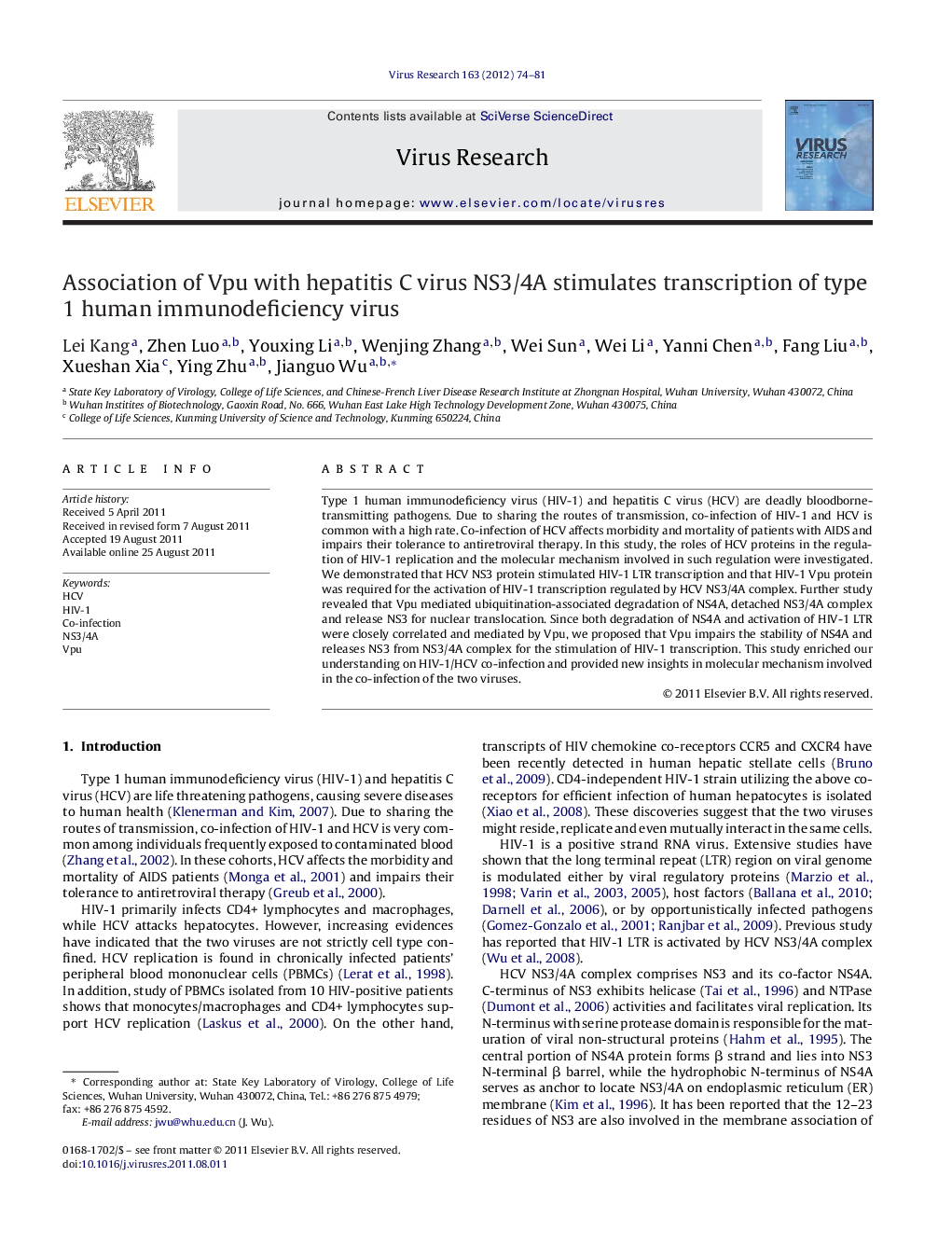| Article ID | Journal | Published Year | Pages | File Type |
|---|---|---|---|---|
| 6143227 | Virus Research | 2012 | 8 Pages |
Type 1 human immunodeficiency virus (HIV-1) and hepatitis C virus (HCV) are deadly bloodborne-transmitting pathogens. Due to sharing the routes of transmission, co-infection of HIV-1 and HCV is common with a high rate. Co-infection of HCV affects morbidity and mortality of patients with AIDS and impairs their tolerance to antiretroviral therapy. In this study, the roles of HCV proteins in the regulation of HIV-1 replication and the molecular mechanism involved in such regulation were investigated. We demonstrated that HCV NS3 protein stimulated HIV-1 LTR transcription and that HIV-1 Vpu protein was required for the activation of HIV-1 transcription regulated by HCV NS3/4A complex. Further study revealed that Vpu mediated ubiquitination-associated degradation of NS4A, detached NS3/4A complex and release NS3 for nuclear translocation. Since both degradation of NS4A and activation of HIV-1 LTR were closely correlated and mediated by Vpu, we proposed that Vpu impairs the stability of NS4A and releases NS3 from NS3/4A complex for the stimulation of HIV-1 transcription. This study enriched our understanding on HIV-1/HCV co-infection and provided new insights in molecular mechanism involved in the co-infection of the two viruses.
⺠We discovered that HCV NS3 stimulates the transcription of HIV-1 LTR. ⺠We showed that HIV-1 Vpu involves in activating HIV-1 LTR regulated by HCV NS3/4A. ⺠Our result indicated that Vpu mediates ubiquitination-associated degradation of NS4A. ⺠Vpu detaches NS3/4A complex resulted in releasing NS3 for nuclear translocation. ⺠Our work provides new insights into the co-infection of HIV-1/HCV.
